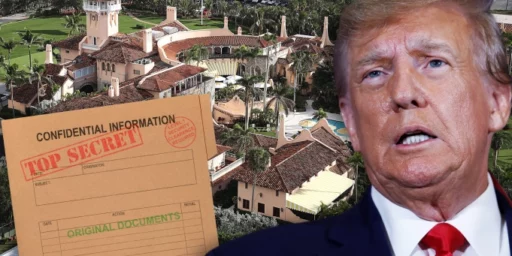Diplomacy As Coercion
Matt Yglesias points out that most people misuse the term “Soft Power” and seem to think that diplomacy is just a less kinetic coercive tool to be tried before launching air strikes (or something like that).
This is just the wrong way to think about it. The aim of diplomacy in this kind of situation is genuine bargaining aimed at reaching a mutually advantageous agreement. You’re trying to cooperate and realize positive-sum gains, and diplomacy is the process by which those opportunities are identified and exploited. Obviously, such efforts sometimes fail and then maybe you look at coercion, but the diplomatic effort is not, as such, an attempt at coercion. If you think of it as one, you’ll wind up thinking of it as a really shoddy attempt at coercion, and wind up rejecting it out of hand. But making a deal wherein you give someone money in exchange for something you’d rather have than the money it cost to buy doesn’t exist on a continuum with knocking the guy over the head with a sock full of quarters and stealing his stuff — they’re entirely different kinds of interactions.
Indeed, nothing diminishes your soft power quite like hitting someone over the head with a sock full of quarters.
The reason, I think, for the misconception Matt encounters is that most people think of “diplomacy” as a high level interaction rather than a mundane, day-to-day bureaucratic function. We see the big peace treaties, arms deals, and crisis intervention efforts rather than the countless regular interactions between representatives of countries. The former are high stakes and often occur at the brink of war and peace whereas the latter are routine and by and large incredibly successful. But, as with the intelligence community, we seldom hear of the successes of diplomats and always hear of the failures.






Best line of the day, by far.
All diplomacy is a continuation of war by other means. Chou En Lai (I wonder if he was dealing directly with Kerry in Paris).
Diplomacy is a disguised war, in which states seek to gain by barter and intrigue, by the cleverness of arts, the objectives which they would have to gain more clumsily by means of war. Randolph Bourne
Diplomacy is the art of saying “Nice doggie!” till you can find a rock. Wynn Catlin
So there are some dissenting views on the subject.
“…genuine bargaining aimed at reaching a mutually advantageous agreement. You’re trying to cooperate and realize positive-sum gains,..”
Anyone who has spent years over the bargaining table with people who don’t wish to cooperate and seek resolution, view this as silly talk.
Think of a football team against a badminton team -it doesn’t come to anything but a onesided victory and not for the good guys Obama.
No, the reason for the misconception — fully shared by Yglesias — is that they do not recognize the case where the other party’s minimum price is more than you are willing or able to pay. “Give them whatever they want” is not an expression of power, soft or otherwise.
Regards,
Ric